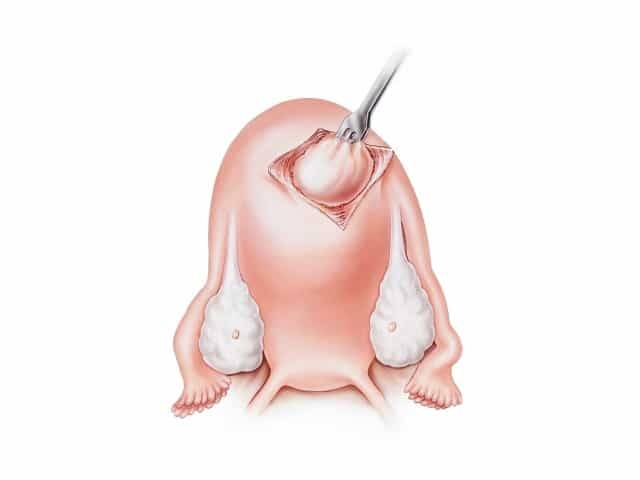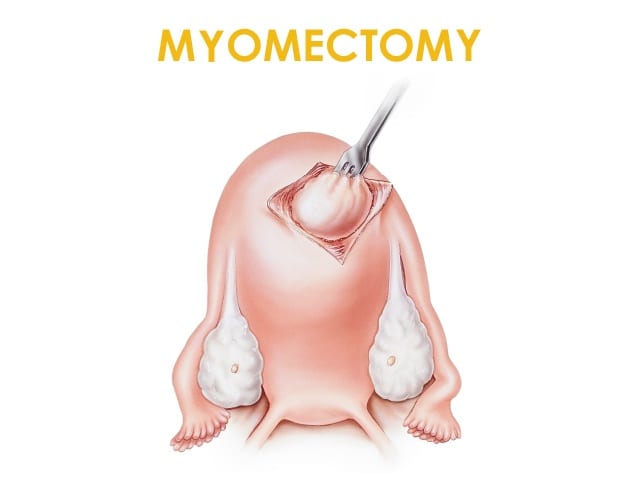A Myomectomy is a surgical procedure to remove Fibroids, while keeping the uterus in place. Fibroids can lead to, abnormal uterine bleeding, difficulty conceiving, miscarriages, large and bulky uterus, and other serious complications during pregnancy.

A Myomectomy is suggested for people with fibroids who still wish to maintain their fertility.
This procedure is rarely performed on people who no longer wish to have children.
Your doctor, following examinations, and depending on the location of the fibroids and their type, will determine the type of Myomectomy you need.
Depending on the location of fibroids and your symptoms, a hysteroscopic or a laparoscopic myomectomy could be offered by your surgeon.
Unfortunately many patients are still offered a traditional Myomectomy, mainly due to the complexity of their case (large or multiple fibroids) and the inexperience of their surgeon.
Minimally invasive and robotic surgeries are always an option for patients at CEAPS, even in the case of complex Myomectomies.
Recovering from a Myomectomy takes approximately 2 weeks, with patients getting back to work and normal activity within 7 to 10 days.
Sex should be avoided for at least two weeks after the procedure, and only resumed once you are feeling comfortable.
After your procedure, and depending on the technique used, you might experience the following:

- Bruises or scars at the incision sites
- Bleeding and spotting similar to menstruation a few days after surgery
- Swelling in arms and legs due to increase fluid intake during your procedure
- Swelling in abdominal area
- Constipation due do medication
- Diarrhea caused by antibiotics
- Urinary retention
- Pain around incision sites
- Pain in pelvic and rectal areas
- Chest and shoulder pain
- Nausea due to anesthesia and/or medication
It is important to be cautious about starting an exercise routine after surgery. Listen to your body and respects its limits.
After a Myomectomy, fertility will be retained, but it is important to allow the uterus to heal completely before trying to conceive. Be sure to consult your doctor about this.
Dr. Moawad believes in a minimally invasive approach for all procedures, performing almost all of his procedures over the past decade through this approach. With an extensive experience in myomectomy procedures, and national and international publications on the topic, Dr. Moawad is one of the world leading experts in performing these particular procedures. At CEAPS, with Dr. Moawad’s approach at the center of what we do, we are determined to provide the best minimally invasive surgeries, giving our patients quicker and easier recovery.

